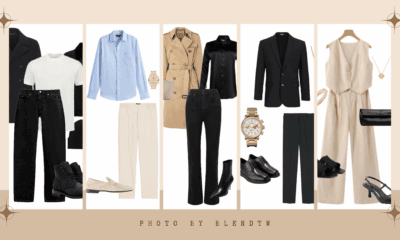College Voices
The Players’ Platform: How the NBA Promotes Social Justice

The National Basketball Association (NBA) has proven in recent years that it operates as one of the most progressive professional sports leagues. Whether that progress entails giving players more freedom to decide their own destinies or taking a leading role in the public discussion of social justice movements, the NBA continues to set an example of how to promote a positive message through sports.
When the nationwide lockdown in response to the coronavirus took place earlier this year, the NBA temporarily closed down its gymnasiums with the intention of resuming the season at a later date.
For weeks, discussions within the league and on media outlets raised more questions than answers. Would the season resume? How could they ensure everyone’s safety? Eventually, the NBA decided on a bubble of sorts; the players, coaches, and essential personnel would all quarantine together in the ESPN Wide World of Sports complex and finish out the season isolated from everyone else and the virus.
Then, George Floyd was killed in an act of police brutality.
The minds of the public and the NBA became more focused on the social justice movement taking place in the wake of Floyd’s murder, and the likelihood of the NBA resuming grew bleaker. What ended up happening was a pivotal achievement for the sports world.
In mid-July, teams began to pile into the Orlando facility. However, the isolation in hotel rooms and the fan-less arena were not the only departures from typical NBA basketball. The vast majority of players replaced their last names with slogans advocating for social justice on the backs of their jerseys.

Phrases that were used included “Equality” and “Education Reform,” and they were complemented by a massive “Black Lives Matter” message running along the side of the court.
“The NBA has brand permission and a platform to do the things that it does under it, what it represents, but then also how the players themselves feel very free and focused on their own messages,” Byron Spruell, the NBA’s president of league operations, said in a recent interview. “I think in the messaging there’s a lot of education that comes with that too. And the conversations we’re having now are so rich and can have an impact.”
The bubble caps off a season that is now unforgettable. It not only showcases what the league and its players can accomplish when they work in unison, but it also serves as a platform to deliver the powerful message of the Black Lives Matter movement.
Typically, sports act as a distraction for many people. They keep our minds occupied from the daily tribulations going on all around us. However, players and NBA personnel knew that with all the protesting and tension across the country, the bubble needed to be different.
Members of the NBA realized the impact that their bubble might have on social justice movements around the country. “People love sports, and it takes you away from whatever you got going on,” said Fred VanVleet, a guard for the Toronto Raptors. “It’s going to be our job and the league’s job to give you the entertainment and still give you the message at the same time.”

The NBA is certainly no stranger to advocating for social justice. The league has a reputation of allowing players to use their platform as professional athletes to effect change. The Miami Heat honored Treyvon Martin in 2012 after he was shot and killed. In 2014, Donald Sterling, the then-owner of the Los Angeles Clippers, was recorded using racist hate speech; his players, joined by other teams around the league, peacefully protested his ownership until Sterling was removed from his position.
In recent years, NBA players have led marches calling for social justice, spoken out against violence, and criticized the use of firearms. At the crescendo of the NBA season, the focus was not solely on the two teams left competing for the championship.
During the bubble, players pushed for reform by sitting out games, urging for more diversity in executive roles, and vocally supporting the Black Lives Matter movement. This NBA season will always be remembered, but not for the fact that it marks Lebron James’ tenth trip to the championship or Jimmy Butler’s first.
It will not be remembered for the bubble in Orlando that saved the season either. Those are just the footnotes. The NBA’s relentless pursuit of social justice is more important than any of their successes from this season. Hopefully, this is just the beginning of more sweeping change. In the words of Lebron James, “We want change, no matter how long it takes.”













